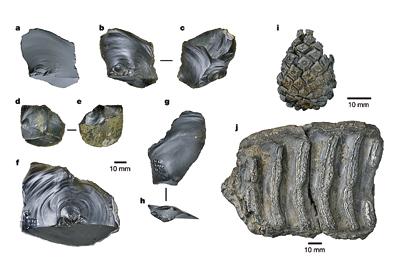Homo sapiens ancestors arrived in Great Britain ahead of schedule

Remnants have been found in a British site showing that the ancestors of the present man had arrived earlier than expected. The site, located on the coast of the North Sea in Happisburgh, has been investigated by the international team that studies the former British colonization (AHOB, Ancient Human Occupation of Britain).
Among others, 78 tools have been found worked in flint. According to archaeologists, they were used to cut meat and wood. But the most remarkable thing is not how the tracks are, but when. In fact, from paleomagnetic studies and plant and animal fossils of the area (pineapples, mammoth yew...), the traces are 780,000 years ago or earlier.
Until now, scientists believed that the ancestors of Homo sapiens had not arrived in Britain until 700,000 years ago. Now, however, they have shown that this territory was previously colonized.
In those times, researchers have concluded that the only human species existing in Europe was the Homo antecessor, so the authors of these instruments belonged to this species. In addition, the false belief has been denied that in those times many believed that in those northern territories it was very cold, but as for vegetation and animal species, they have seen that the climate was temperate, so it is ideal for those human beings.
Researchers continue to work in hopes of finding some human fossil. The results have been published in the journal Nature.





